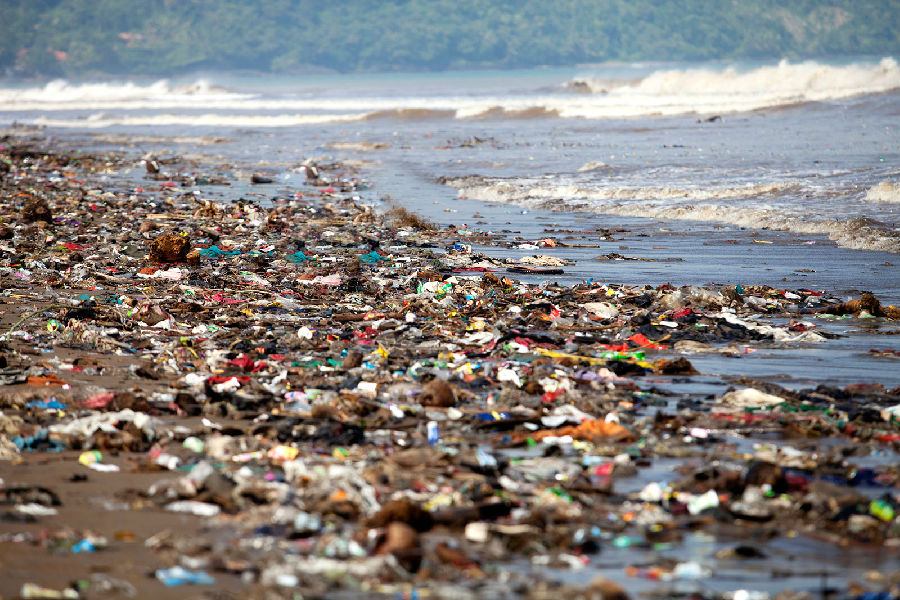Even greater "catastrophic multi species die-offs" could begin within the decade, Trisos predicts,
據(jù)特里索斯預測,未來十年之內(nèi)就可能爆發(fā)規(guī)模更大的“多物種的災(zāi)難性滅絕”,
starting with tropical oceans and spreading to tropical forests and temperate ecosystems by the 2050s.
首當其沖的便是熱帶海洋,到50年代將會蔓延至熱帶森林和溫帶生態(tài)系統(tǒng)。
Coastal nations would be first and hardest hit,
沿海國家將成為最先受到?jīng)_擊,沖擊也最為嚴重的地區(qū),
with devastating consequences for the billions of people who depend on these ecosystems for their livelihoods and nutrition.
屆時,依賴這些生態(tài)系統(tǒng)生存發(fā)展的數(shù)十億人都將面臨毀滅性的打擊。
"We fish on coral reefs.
“我們要在珊瑚礁上捕魚。
We depend on ecotourism.
生態(tài)旅游也是我們的重要經(jīng)濟來源。
We rely on healthy (kelp) forests for carbon storage and water filtration," Trisos says.
我們還要依靠健康的(海藻)森林來儲存碳以及過濾水,”特里索斯說。
"If there is a sudden collapse of these ecosystems in a single decade, we could lose these services.
“如果十年之內(nèi),這些生態(tài)系統(tǒng)就要突然崩潰了,那我們可能就要失去這些服務(wù)了。
Income is at risk. Food security is at risk."
我們的收入也就懸了。糧食安全也懸了。”
But there are ways of preserving the ecosystems many nations depend upon.
不過,我們依然有辦法保護這些許多國家賴以生存的生態(tài)系統(tǒng)。
Spanish-American marine ecologist and conservationist Enric Sala has spent the past 12 years
過去12年,西班牙裔美國海洋生態(tài)學家,自然資源保護者恩里克·薩拉
surveying and documenting the ocean's last wilderness areas as a National Geographic explorer in residence.
一直在以《國家地理》常駐探險家的身份調(diào)查、記錄海洋最后的荒野。
Through his Pristine Seas project,
通過“原始海洋計劃”,
he has rallied governments to set aside 5.7 million sq km of coastline and ocean
他已經(jīng)召集多國政府劃出570萬平方公里的海岸線和海洋,
as marine parks where fishing, dumping, mining and other destructive industries are prohibited.
將其打造成禁止捕撈、傾倒、采礦等破壞性行業(yè)的海洋公園。
The results, he says, have been astonishing.
其結(jié)果,他表示,堪稱驚艷。
Even over a short time frame,
即便項目啟動的時間并不長,
he has watched depleted fish populations grow six-fold, kelp flourish and coral reefs bloom.
他就已目睹了原本已近枯竭的魚群數(shù)目壯大了6倍之多,海藻和珊瑚礁也都已煥發(fā)出蓬勃的生機。

Given the chance, he says, the ocean has an extraordinary ability to regenerate.
只要給了機會,他說,海洋就會展現(xiàn)出非凡的再生能力。
"I have seen miracles on the water.
“我在水上看到了奇跡。
The ocean is sending us a very clear message:
海洋在向我們傳遞一個非常明確的信息:
if you just give me some space, look what I can do."
只要你給我一定的空間,我有多大能耐你就等著瞧及好了。”
So far, says Sala, only 2.5% of the ocean enjoys the full protection it needs to do so.
到目前為止,薩拉說,只有2.5%的海洋享受到了其施展拳腳所需的所有保護。
He has backed a global call to set aside a third of the ocean in similarly protected areas by 2030.
他推動了一項全球行動呼吁,呼吁國際社會在2030年之前,劃出1/3的海洋進行同樣的保護。
These marine protected areas aren't just about turning back the clock.
這些海洋保護區(qū)不僅僅是為了讓時光倒流。
They are a bulwark against future stresses,
它們還是抵御未來環(huán)境壓力的堡壘,
a kind of immunity booster for the sea that enables it to deal with threats like acidification and plastic pollution.
是增強海洋免疫力,使其能夠應(yīng)對酸化和塑料污染等威脅的強心劑。
"Not only is it necessary from a perspective of trying to undo some of the harm that we have done to the ocean over time," says Roberts,
“這一舉措不僅從試圖消除我們?nèi)辗e月累地對海洋造成的傷害的角度來看是必要的,”羅伯茨說,
"but it's absolutely vital that we give it the resilience it needs to cope with what's coming down the pike."
“而且,從增強海洋的韌性,使其能夠應(yīng)對未來可能出現(xiàn)的問題的角度來看,這一舉措也是至關(guān)重要的。”
譯文由可可原創(chuàng),僅供學習交流使用,未經(jīng)許可請勿轉(zhuǎn)載。











